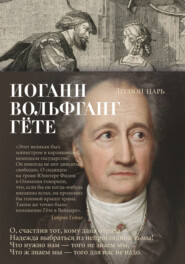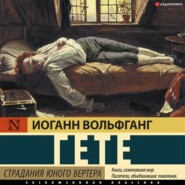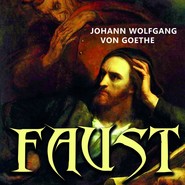По всем вопросам обращайтесь на: info@litportal.ru
(©) 2003-2024.
✖
Egmont
Настройки чтения
Размер шрифта
Высота строк
Поля
Regent. I have sent for him to Antwerp. I will lay upon their shoulders the burden of responsibility; they shall either strenuously co-operate with me in quelling the evil, or at once declare themselves rebels. Let the letters be completed without delay, and bring them for my signature. Then hasten to despatch the trusty Vasca to Madrid, he is faithful and indefatigable; let him use all diligence, that he may not be anticipated by common report, that my brother, may receive the intelligence first through him. I will myself speak with him ere he departs.
Machiavel. Your orders shall be promptly and punctually obeyed.
SCENE III. – Citizen's House
Clara, her Mother, Brackenburg
Clara. Will you not hold the yarn for me, Brackenburg?
Brackenburg. I entreat you, excuse me, Clara.
Clara. What ails you? Why refuse me this trifling service?
Brackenburg. When I hold the yarn, I stand as it were spell-bound before you, and cannot escape your eyes.
Clara. Nonsense! Come and hold!
Mother (knitting in her arm-chair). Give us a song! You used to be merry once, and I had always something to laugh at.
Brackenburg. Once!
Clara. Well, let us sing.
Brackenburg. As you please.
Clara. Merrily, then, and sing away! 'Tis a soldier's song, my favourite.
(She winds yarn, and sings with Brackenburg.)
The drum is resounding,
And shrill the fife plays;
My love, for the battle,
His brave troop arrays;
He lifts his lance high,
And the people he sways.
My blood it is boiling!
My heart throbs pit-pat!
Oh, had I a jacket,
With hose and with hat!
How boldly I'd follow,
And march through the gate;
Through all the wide province
I'd follow him straight.
The foe yield, we capture
Or shoot them! Ah, me!
What heart-thrilling rapture
A soldier to be!
(During the song, Brackenburg has frequently looked at Clara; at length his voice falters, his eyes fill with tears, he lets the skein fall, and goes to the window. Clara finishes the song alone, her Mother motions to her, half displeased, she rises, advances a few steps towards him, turns back, as if irresolute, and again sits down.)
Mother. What is going on in the street, Brackenburg? I hear soldiers marching.
Brackenburg. It is the Regent's body-guard.
Clara. At this hour? What can it mean? (She rises and joins Brackenburg at the window.) That is not the daily guard; it is more numerous! almost all the troops! Oh, Brackenburg, go! Learn what it means. It must be something unusual. Go, good Brackenburg, do me this favour.
Brackenburg. I am going! I will return immediately. (He offers his hand to Clara, and she gives him hers.)
[Exit Brackenburg.
Mother. Thou sendest him away so soon!
Clara. I am curious; and, besides – do not be angry, Mother – his presence pains me. I never know how I ought to behave towards him. I have done him a wrong, and it goes to my very heart to see how deeply he feels it. Well, it can't be helped now!
Mother. He is such a true-hearted fellow!
Clara. I cannot help it, I must treat him kindly. Often without a thought, I return the gentle, loving pressure of his hand. I reproach myself that I am deceiving him, that I am nourishing in his heart a vain hope. I am in a sad plight! God knows, I do not willingly deceive him. I do not wish him to hope, yet I cannot let him despair!
Mother. That is not as it should be.
Clara. I liked him once, and in my soul I like him still I could have married him; yet I believe I was never really in love with him.
Mother. Thou wouldst always have been happy with him.
Clara. I should have been provided for, and have led a quiet life.
Mother. And through thy fault it has all been trifled away.
Clara, I am in a strange position. When I think how it has come to pass, I know it, indeed, and I know it not. But I have only to look upon Egmont, and I understand it all; ay, and stranger things would seem natural then. Oh, what a man he is! All the provinces worship him. And in his arms, should I not be the happiest creature in the world?
Mother. And how will it be in the future?
Clara. I only ask, does he love me? – does he love me? – as if there were any doubt about it.
Mother. One has nothing but anxiety of heart with one's children. Always care and sorrow, whatever may be the end of it! It cannot come to good! Thou hast made thyself wretched! Thou hast made thy Mother wretched too.
Clara (quietly). Yet thou didst allow it in the beginning.
Mother. Alas! I was too indulgent; I am always too indulgent.
Clara. When Egmont rode by, and I ran to the window, did you chide me then? Did you not come to the window yourself? When he looked up, smiled, nodded, and greeted me, was it displeasing to you? Did you not feel yourself honoured in your daughter?
Mother. Go on with your reproaches.
Clara (with emotion). Then, when he passed more frequently, and we felt sure that it was on my account that he came this way, did you not remark it yourself with secret joy? Did you call me away when I stood behind the window-pane and awaited him?
Mother. Could I imagine that it would go so far?

















